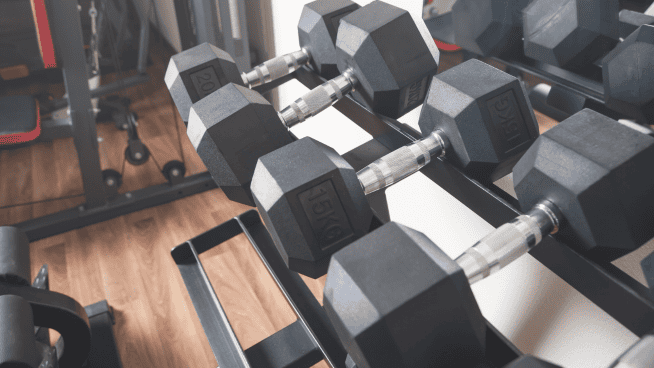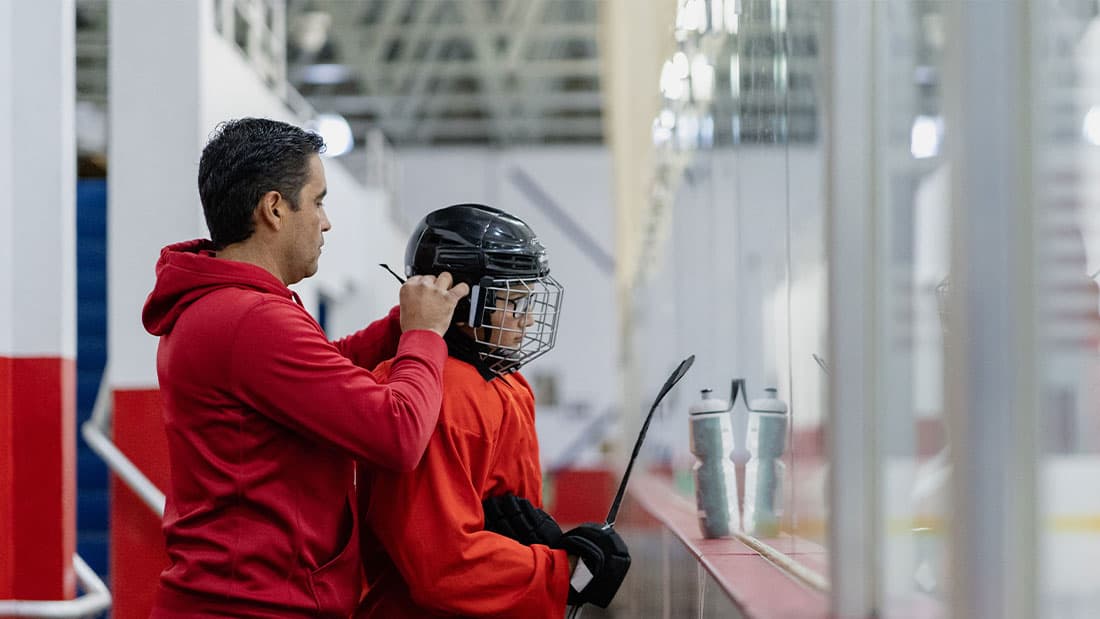Should Teen Athletes Take Creatine?
All athletes seek out ways to improve performance. And, most times, it is through supplementation; that can give them the extra edge on their opponent. Creatine is a trendy supplement used in training and athletics today. It is very safe to take as an adult. However, the American Academy of Pediatricians and American College of Sports Medicine say that teen athletes under 18 should not use creatine and other performance-enhancing supplements. Some recent research has been done for teen athletes and creatine in the past years that is promising. But there are still concerns about the long-term effects to deem it safe for adolescents.
What is Creatine
Creatine is an amino acid derivative. It is a powder mixed in water or a pill used to increase power during training, competition, or muscle size. Your brain also uses it to improve cognitive performance by replenishing energy for your brain. It is naturally produced by your liver and kidneys and can be ingested from foods. Most people get creatine through fish, poultry, and meat. However, the levels you consume from creatine in meats and fish is very low compared to taking a creatine supplement. For example, one chicken breast has about .4 grams of creatine, and taking a scoop of creatine powder can be between 2 and 5 grams.
What is Creatine Used For
Your body stores creatine in your muscles and brain for energy. It improves muscular and cognitive performance. However, creatine plays a significant role during high-intensity exercise. When you take creatine, it increases the supply of creatine in your muscles. As a result, creatine helps muscles become more explosive. Mainly, it helps boost energy and explosiveness from 20 to 90 seconds. Therefore, it is primarily effective for short-duration exercise or training requiring intense movements like interval training and sprinting.
Creatine can be good for sports like baseball, basketball, football, soccer, or lacrosse. However, it is not so effective for sports like cycling, swimming, and running which are more endurance-oriented.
Creatine also helps with post-recovery by replenishing and boosting glycogen after training or competition.
The Benefits of Creatine
Over the years, there has been a lack of research concerning creatine and teen athletes. However, a new study from 2018 says creatine is safe, healthy, and beneficial for teen athletes.
The study highlighted that the use of creatine in “healthy adolescents” has the potential to be well-tolerated with little to no adverse effects. The research on creatine shows that it can be used as a means to improve medical conditions as well as physical performance.
Another study showed creatine increases the protection of the brain. It said that creatine was effective if taken before a possible concussion occurs in the head and could help with the recovery of a concussion. Creatine can act as a protection mechanism for the brain.
Is Creatine Safe
It appears creatine is safe for teen athletes. Between 25-30% of high school athletes use creatine. However, do your research, know your child’s health and possible contraindications to any health issues that can create difficulty. And, always ask your doctor first. Creatine has successfully been used to treat specific health conditions in children and adolescents.
If you agree, and your teen athlete does decide to take creatine, remember more is not better when using it. Make sure you supervise their dosage. The problem with an immature mind is that it does not understand what is too much and thinks more is better. If it says to take 2, the teen athlete may think I will take 4. That is not how it works and how problems can develop. Creatine is legal for high school athletes.
When taking creatine, make sure they/you do the following.
- Take only if your athlete is involved in sports, fitness, training, and exercise programs.
- Taking creatine is not a meal replacement. It is a boost. And, so you need to eat a well-balanced diet. Eating well and food better supports creatine.
- Always take correct doses and buy a high-quality creatine supplement. The FDA does not strictly regulate supplements. Make sure it is pure creatine.
- Supervise the dosage.
- Never take more than 3-5 grams per day. Ignore the loading phase of 20 grams a day. Anything above 5-grams will be eliminated from the body by the kidneys. Large doses could lead to physical problems.
- After eight weeks, take a month or two off.
- Discontinue if you experience any side effects.
The Negative Effects for Teenagers
Creatine can have harmful effects if it is not loaded or taken correctly or if your teen athlete’s health is compromised and has issues, especially with their liver or kidneys. Creatine is made in the liver and kidney, so be cautious of medications affecting the liver or kidney and over-counter pain relievers.
Possible Side Effects and Issues Of Creatine
- Nausea
- Dehydration
- Cramps
- Stomach problems
- Kidney and liver problems
Teen athletes are still growing, developing, and maturing. The research is not bad and is a judgment call based on you, your athlete, and your doctor. It is best to let them have fun and teach them about how to eat well to support their performance and physical development in their growing years. Creatine is not going to be the reason why your teen athlete will excel in their sport. That will be done by hard work, perseverance, patience, and effort.
Again, always do your research and consult your doctor to optimize your athlete’s performance.
RECOMMENDED FOR YOU
MOST POPULAR
Should Teen Athletes Take Creatine?
All athletes seek out ways to improve performance. And, most times, it is through supplementation; that can give them the extra edge on their opponent. Creatine is a trendy supplement used in training and athletics today. It is very safe to take as an adult. However, the American Academy of Pediatricians and American College of Sports Medicine say that teen athletes under 18 should not use creatine and other performance-enhancing supplements. Some recent research has been done for teen athletes and creatine in the past years that is promising. But there are still concerns about the long-term effects to deem it safe for adolescents.
What is Creatine
Creatine is an amino acid derivative. It is a powder mixed in water or a pill used to increase power during training, competition, or muscle size. Your brain also uses it to improve cognitive performance by replenishing energy for your brain. It is naturally produced by your liver and kidneys and can be ingested from foods. Most people get creatine through fish, poultry, and meat. However, the levels you consume from creatine in meats and fish is very low compared to taking a creatine supplement. For example, one chicken breast has about .4 grams of creatine, and taking a scoop of creatine powder can be between 2 and 5 grams.
What is Creatine Used For
Your body stores creatine in your muscles and brain for energy. It improves muscular and cognitive performance. However, creatine plays a significant role during high-intensity exercise. When you take creatine, it increases the supply of creatine in your muscles. As a result, creatine helps muscles become more explosive. Mainly, it helps boost energy and explosiveness from 20 to 90 seconds. Therefore, it is primarily effective for short-duration exercise or training requiring intense movements like interval training and sprinting.
Creatine can be good for sports like baseball, basketball, football, soccer, or lacrosse. However, it is not so effective for sports like cycling, swimming, and running which are more endurance-oriented.
Creatine also helps with post-recovery by replenishing and boosting glycogen after training or competition.
The Benefits of Creatine
Over the years, there has been a lack of research concerning creatine and teen athletes. However, a new study from 2018 says creatine is safe, healthy, and beneficial for teen athletes.
The study highlighted that the use of creatine in “healthy adolescents” has the potential to be well-tolerated with little to no adverse effects. The research on creatine shows that it can be used as a means to improve medical conditions as well as physical performance.
Another study showed creatine increases the protection of the brain. It said that creatine was effective if taken before a possible concussion occurs in the head and could help with the recovery of a concussion. Creatine can act as a protection mechanism for the brain.
Is Creatine Safe
It appears creatine is safe for teen athletes. Between 25-30% of high school athletes use creatine. However, do your research, know your child’s health and possible contraindications to any health issues that can create difficulty. And, always ask your doctor first. Creatine has successfully been used to treat specific health conditions in children and adolescents.
If you agree, and your teen athlete does decide to take creatine, remember more is not better when using it. Make sure you supervise their dosage. The problem with an immature mind is that it does not understand what is too much and thinks more is better. If it says to take 2, the teen athlete may think I will take 4. That is not how it works and how problems can develop. Creatine is legal for high school athletes.
When taking creatine, make sure they/you do the following.
- Take only if your athlete is involved in sports, fitness, training, and exercise programs.
- Taking creatine is not a meal replacement. It is a boost. And, so you need to eat a well-balanced diet. Eating well and food better supports creatine.
- Always take correct doses and buy a high-quality creatine supplement. The FDA does not strictly regulate supplements. Make sure it is pure creatine.
- Supervise the dosage.
- Never take more than 3-5 grams per day. Ignore the loading phase of 20 grams a day. Anything above 5-grams will be eliminated from the body by the kidneys. Large doses could lead to physical problems.
- After eight weeks, take a month or two off.
- Discontinue if you experience any side effects.
The Negative Effects for Teenagers
Creatine can have harmful effects if it is not loaded or taken correctly or if your teen athlete’s health is compromised and has issues, especially with their liver or kidneys. Creatine is made in the liver and kidney, so be cautious of medications affecting the liver or kidney and over-counter pain relievers.
Possible Side Effects and Issues Of Creatine
- Nausea
- Dehydration
- Cramps
- Stomach problems
- Kidney and liver problems
Teen athletes are still growing, developing, and maturing. The research is not bad and is a judgment call based on you, your athlete, and your doctor. It is best to let them have fun and teach them about how to eat well to support their performance and physical development in their growing years. Creatine is not going to be the reason why your teen athlete will excel in their sport. That will be done by hard work, perseverance, patience, and effort.
Again, always do your research and consult your doctor to optimize your athlete’s performance.











